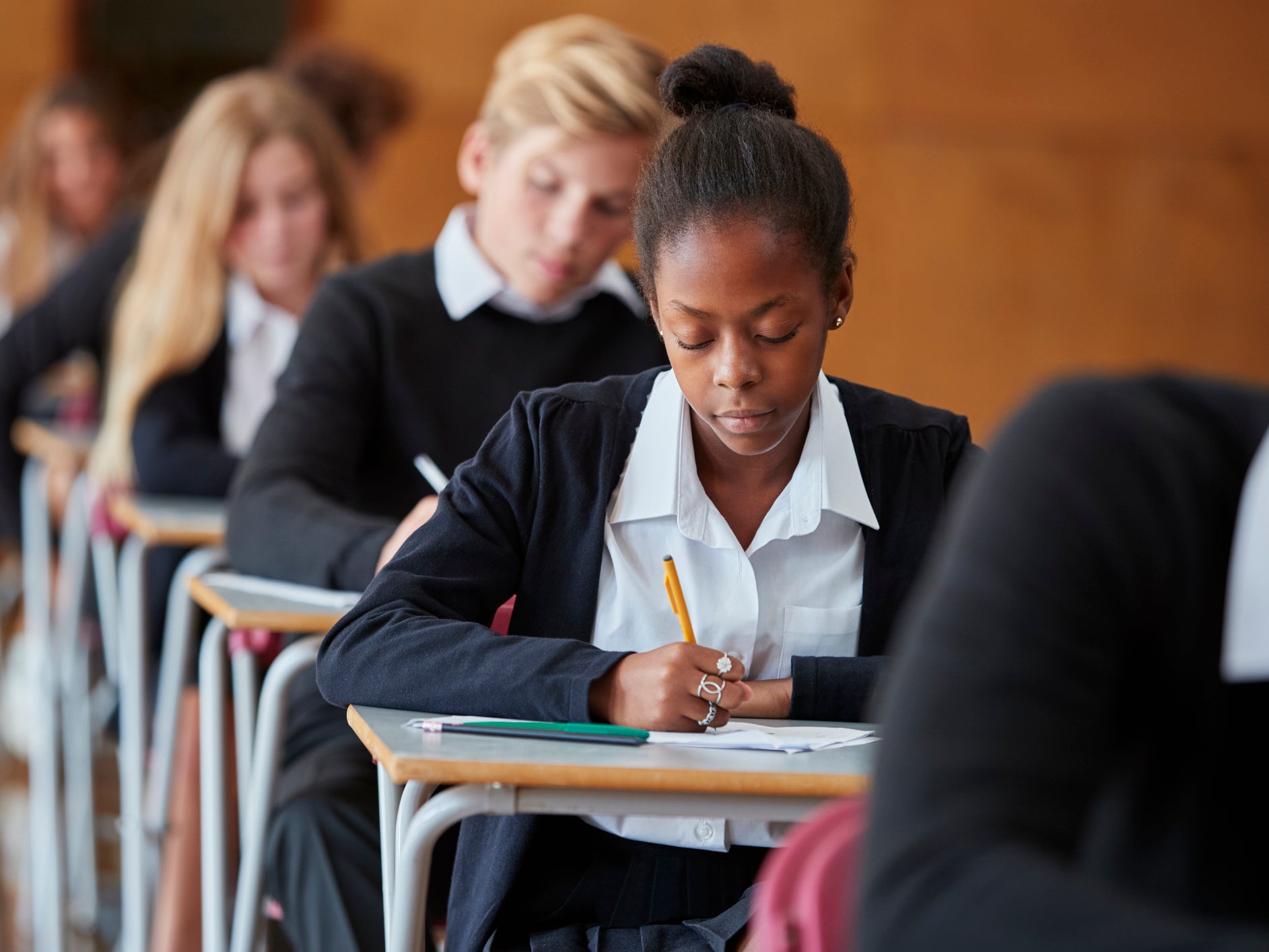How will GCSE, AS and A-Levels be graded in England after exams were cancelled?
‘Simply using predicted grades would not be fair to all students,’ Department for Education states

Earlier this month, the government announced plans to start easing lockdown restrictions in England.
Part of these measures included the gradual reopening of schools, with primary school children in key transition years due to return by Monday 1 June “at the earliest”, as long as the spread of the coronavirus remains “on the downward slope”.
While schools may start welcoming back an increased number of students in the coming weeks, exams and assessments, including GCSEs, AS and A-Level exams, will not take place.
England’s Department for Education said that exams and assessments were cancelled in order to “give pupils, parents, and teachers certainty, and enable schools and colleges to focus on supporting vulnerable children and the children of critical workers”.
So for pupils who were due to take GCSE, AS and A-Level exams this summer, how will their final grades be determined in light of the Covid-19 pandemic?
How are GCSE, AS and A-Level grades being calculated?
Despite summer exams not taking place, GCSE, AS and A-Level students will still receive a final, calculated grade for their subjects.
This grade will take “a range of evidence” into account, including non-exam assessments and mock results.
In order to ensure that calculated grades are “fair between schools and colleges”, exam boards will be putting “all centre assessment grades through a process of standardisation using a model developed with Ofqual, the independent qualifications regulator”.
A-Level students will not simply receive the predicted grade that was included in their university applications for their calculated grade.
“We know that simply using predicted grades would not be fair to all students,” the Department for Education said.
Exam boards are asking schools and colleges to submit a “centre assessment grade” for GCSE, AS and A-Level students, which “will take into account an assessment of the likely grade that students would h ave obtained had exams gone ahead”.
The centre assessment grades will then be “standardised” across schools and colleges.
“For this reason, students’ final calculated grades will not necessarily be the same as either the predicted grades used for university applications, or the centre assessment grade put forward by their school or college,” the governmental department added.
When will students receive their results?
The dates for the release of GCSE, AS and A-Level results have remained unchanged.
AS and A-Level results are due to be released on Thursday 13 August.
GCSE results will then follow on Thursday 20 August.
Europe emerges from lockdowns across the continent
Show all 19The release of the results during August “will enable progression to higher and further education to take place in the normal way”, the Department for Education says.
“It will also allow students time to decide whether they wish to sit exams in the autumn, and to prepare for those exams if necessary.”
The results for vocational and technical qualifications will be released on the same days as GCSE and A-Level results.
Can students appeal their calculated grades if they are unhappy?
If a student does not believe that the “correct process has been followed” when receiving their calculated grade, then they “will have access to a right of appeal on that basis”.
If they are unhappy with their grade, they will have the chance to retake their exam in the autumn.
Pupils will also have the opportunity to take their exams in the summer of 2021 should they wish, “in line with usual practice”.
For more information, click here.
How will students be protected from teacher bias?
The Department for Education states that the independent qualifications regulator Ofqual is “developing a fair and robust process” to ensure that all students are treated fairly when their grades are being calculated.
“Ofqual ran a consultation from 15 to 29 April seeking views on aspects of their proposed assessment arrangements for GCSEs, AS and A levels, including an equality impact assessment informed by a review of the research literature on bias in teacher assessments,” the department said.
“Pupils who do not feel their calculated grade reflects their ability will have the opportunity to sit an exam as soon as is reasonably possible in the autumn.”
Subscribe to Independent Premium to bookmark this article
Want to bookmark your favourite articles and stories to read or reference later? Start your Independent Premium subscription today.

Join our commenting forum
Join thought-provoking conversations, follow other Independent readers and see their replies